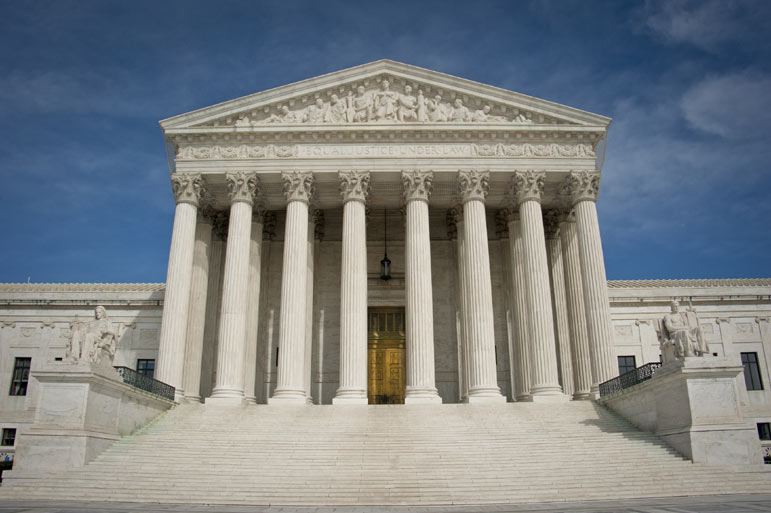
Lawyers for the American Civil Liberties Union said if justices are not prepared to affirm lower court rulings keeping the question off the census form, they should send the issue back to a lower court to consider new allegations that the question was added at the behest of a Republican operative to benefit the party and white voters in general.
"If ever there were a case that should be decided on the basis of a true and complete record, it is this one," ACLU lawyer Dale Ho wrote in the brief. "Even an appearance that the government has manipulated the census for partisan and racially discriminatory purposes would undermine public confidence in our representative democracy."
The justices heard oral argument in the case in April, and are scheduled to issue a ruling by the end of June. The issue was rushed to the Supreme Court because the Commerce Department said it needs an answer this summer to print census forms.
At oral argument, it appeared the court's conservative majority was likely to let the citizenship question proceed, focusing more on whether Commerce Secretary Wilbur Ross had the proper authority to make the decision, and less on questions of his motivations.
The motion filed Wednesday night is highly unusual, but is representative of the enormous consequences of the decision, and the politics surrounding it.
The House Oversight Committee voted on Wednesday to hold Ross and Attorney General William Barr in contempt for not turning over documents about the administration's decision to add the question.
The nearly party-line vote came hours after President Donald Trump asserted executive privilege to shield the materials from Congress.
Opponents of the question have attempted to reopen the case with revelations suggesting the motivation and rationale originated with a Republican redistricting strategist who died in August.
Files from Thomas Hofeller included a 2015 study in which he determined that the addition of a citizenship question to the decennial survey would give a structural electoral advantage to Republicans and non-Hispanic whites, and documents indicating that in 2017 he helped the Trump administration craft a rationale for adding the question.
Plaintiffs' lawyers said the new documents strengthen their argument that the question was intended to disenfranchise Democrats and minority voters, and contradict sworn testimony by Ross' expert adviser Mark Neuman and senior Justice Department official John Gore, as well as other testimony by defendants.
The Justice Department called the filings "smoke and mirrors" and said they resembled the arguments of a "conspiracy theorist" more than legal analysis. The only goal, the department said, was to derail the Supreme Court deliberations.
Plaintiff lawyers first tried to get the issue before U.S. District Judge Jesse Furman of New York, who ruled against the administration in the case now before the Supreme Court.
But he said last week he would not do anything before the Supreme Court rules.
"I lack authority to do anything with respect to the merits of the case," Furman said, adding "I don't want to do anything that would cross the line or seem to cross the line" between his jurisdiction and that of the Supreme Court.
Furman was one of three federal judges who ruled against the administration in separate cases. The Justice Department said the reason for asking the citizenship question of each respondent was to get information that would help enforce the Voting Rights Act. All three judges said that was not credible - the question has not been asked of everyone since before the act was passed. But the judges have not found the secretary was acting with discriminatory intent or in a partisan way.
Opponents of the question have argued it will suppress response to the survey among immigrant communities, resulting in an undercount in the areas where they live.
Census data is used to allocate hundreds of billions of dollars in federal funding each year, as well as in congressional apportionment and redistricting.
Sign up for the daily JWR update. It's free. Just click here.
(COMMENT, BELOW)


 Contact The Editor
Contact The Editor
 Articles By This Author
Articles By This Author